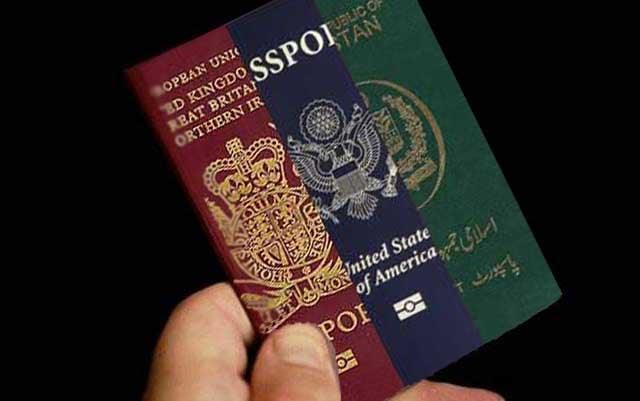Pakistan has formalized new double citizenship agreements with 22 countries under the Pakistani Citizenship bill (amendment), allowing its nationals to preserve Pakistani citizenship even after acquiring the nationality of these countries.
The Directorate General for Immigration and Passports, a sub-departure from the Ministry of the Interior, confirmed that Pakistani citizens would no longer be required to renounce their Pakistani nationality if they obtain the citizenship of one of the 22 countries designated.
This marks a significant difference compared to the previous policy, under which only a few selected countries had such agreements with Pakistan.
The bill has been approved by the Standing Committee of the National Assembly and should be fully implemented after final parliamentary approval.
The Law Ministry specified during a recent briefing that many countries need proof of renouncing citizenship before granting a new nationality, which has created complications for the Pakistanis abroad. The amendment aims to resolve these issues and restore citizenship rights for affected people.
The director general of passports and immigration Mustafa Jamal Qazi confirmed that official agreements were now in place with countries across Europe, the Middle East, North America and Oceania.
He stressed that the two nationals will no longer face legal obligations to renounce their Pakistani citizenship during the acquisition of the citizenship of these states.
Among the countries now included in the agreement are the United Kingdom, the United States, Canada, Australia, France, Italy, Belgium, Iceland, New Zealand, Finland, Egypt, Jordan, Syria, Switzerland, the Netherlands, Sweden, Ireland, Bahrain, Denmark, Germany, Norway and Luxembourg.
The United Kingdom, the United States, Canada and Australia were already one of the existing dual nationality agreements with Pakistan, while the others represent new additions.
Pakistan also started working towards a similar agreement with Turkiye. A proposal project is being examined by the Ministry of Foreign Affairs and the Ministry of the Interior, following the suggestion of Turkiye to allow mutual dual citizenship rights between the two countries.




